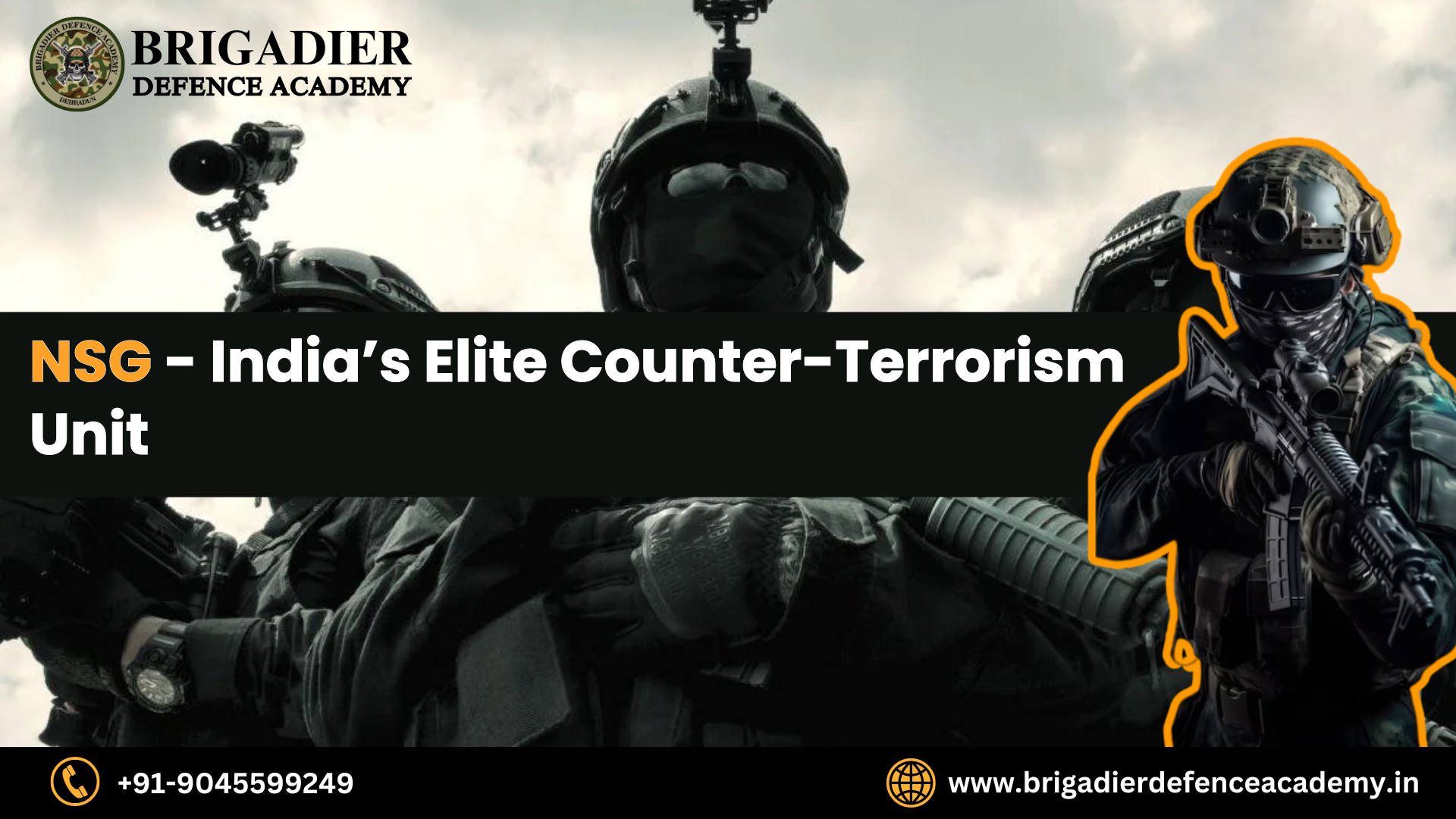The National Security Guard(NSG): India’s Premier Counter-Terrorism Force
In the realm of national defense and internal security, the National Security Guard (NSG) stands out as one of India’s premier counter-terrorism units. Formed in 1984 following Operation Blue Star and the assassination of Prime Minister Indira Gandhi, the NSG was created to respond to severe terrorist activities and protect India’s national integrity. Known popularly as the “Black Cats” because of their distinctive black uniforms and assault gear, the NSG operates under the Ministry of Home Affairs and plays a crucial role in India’s security apparatus.
Origins and Structure
The NSG was modeled after Germany’s GSG 9 and other international counter-terrorist units, with the goal of having a force trained specifically to handle various forms of terrorist threats. The NSG is a Federal Contingency World Class Zero Error Force that primarily comprises two groups: the Special Action Group (SAG) and the Special Rangers Group (SRG). The SAG is the core of the NSG and consists exclusively of personnel on deputation from the Indian Army, specializing in combat skills, tactics, and parachute operations. On the other hand, the SRG is drawn from the Central Armed Police Forces and State Police Forces, focusing on aiding the SAG during operations.
Training and Capabilities of National Security Guard
Training for the NSG is notoriously rigorous, involving basic combat training, specialized counter-terrorism tactics, handling of high-tech equipment, and advanced skills such as bomb disposal, handling of nuclear and biological threats, martial arts, and hostage rescue operations. The training program not only prepares them for terrorist attacks but also situations involving hijackings and VIP protection duties.
Members of the NSG undergo about 14 months of intensive training, which conditions them physically and mentally for the high-stress demands of their operations. They are trained in a variety of urban warfare tactics and are proficient in handling modern weaponry and sophisticated gadgets.
Notable Operations
The efficacy of the NSG has been proven in various operations across its history. One of the most notable operations was during the 2008 Mumbai attacks (26/11), where NSG commandos were air-dropped into the city and played a crucial role in neutralizing the terrorists and rescuing hostages from multiple locations, including the iconic Taj Mahal Palace Hotel and Nariman House. The operation, which lasted over 60 hours, was pivotal in the eventual resolution of the crisis and demonstrated the NSG’s capabilities on a global stage.
Other significant operations include the Akshardham Temple attack in Gujarat (2002), where the NSG successfully neutralized the terrorists who had attacked the temple, and the Pathankot airbase attack in 2016, where they were instrumental in securing the airbase and eliminating the terrorists.
Modernization and Challenges of National Security Guard
Over the years, the NSG has continuously upgraded its technology and arsenal to keep up with the evolving nature of terrorist threats. Modernization in surveillance, intelligence gathering, and weaponry has enhanced their operational effectiveness. The force has integrated drones, night vision devices, and counter-explosive equipment, among other technologies, into their arsenal.
Despite its successes, the NSG faces challenges such as the need for regional hubs to ensure quicker deployment in different parts of the country, which has been partially addressed with the establishment of regional hubs in major cities like Mumbai, Kolkata, Hyderabad, and Chennai. Moreover, the high-risk nature of their operations often requires maintaining the utmost secrecy and readiness, which can be both physically and mentally demanding on the personnel.
The National Security Guard remains one of the most elite and dedicated counter-terrorism units in the world. Its personnel are not only a testament to India’s commitment to combating terrorism but also represent the spirit of sacrifice and bravery. As terrorism continues to evolve in its methods and tactics, so too will the NSG, adapting and preparing to defend the nation against any threats to its people and sovereignty. As we look to the future, the continued support for and modernization of the NSG will be paramount in ensuring the security of India in an increasingly unpredictable global security environment.







